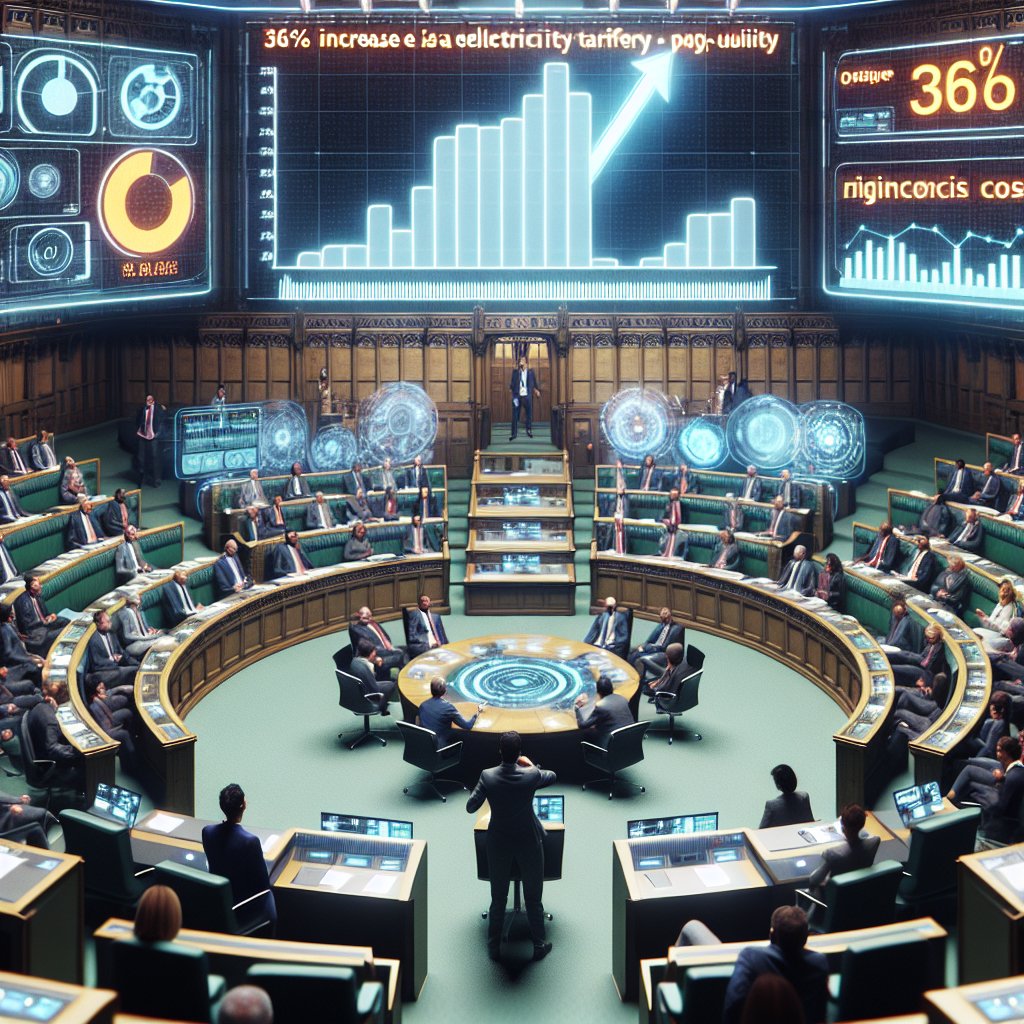Image created by AI
DA Calls for Urgent Debate on Eskom's Steep Tariff Hike Proposal
The Democratic Alliance (DA) in South Africa is pushing for an urgent parliamentary debate on the proposed 36% increase in electricity tariffs by Eskom, the country's primary power utility. The call for debate comes amidst concerns about the affordability and economic impact such a significant increase would have on ordinary South Africans.
Kevin Mileham, the DA's energy spokesperson, has been vocal about addressing this issue promptly, especially considering recent comments from Electricity Minister Kgosientsho Ramokgopa regarding the need to review high electricity prices. Taking into account households that currently spend approximately R900 per month on electricity, the tariff increase could force consumers to shell out R1,260 monthly – a nearly 40% surge in their utility expenses.
The DA acknowledges that while a debate might not necessarily deter the National Energy Regulator of South Africa (NERSA) from approving Eskom's tariff hike, it will serve to shine a light on the far-reaching implications such an increase would have. By bringing the debate to Parliament, the opposition aims to draw Ramokgopa's and the public's attention to the burdensome cost escalation faced by consumers.
The urgency of the matter is underscored by the fact that the increase, if approved by NERSA without thorough public and parliamentary scrutiny, could have an immediate effect on consumers who are already grappling with economic uncertainties. The DA appears to be stressing that a tariff hike of this magnitude requires substantial deliberation and analysis of the impact it will have on the cost of living and the wider economy.
The scheduling of the debate will be decided once the programme committee convenes on Thursday, with expectations that it would be held the following week. By pressing for a discussion in the national legislature, the DA is taking an active role in ensuring there is transparency and public participation in decisions that affect the economic well-being of South Africans. The party's proactive stance reflects its commitment to both holding the energy sector accountable and advocating for the economic interests of citizens.










